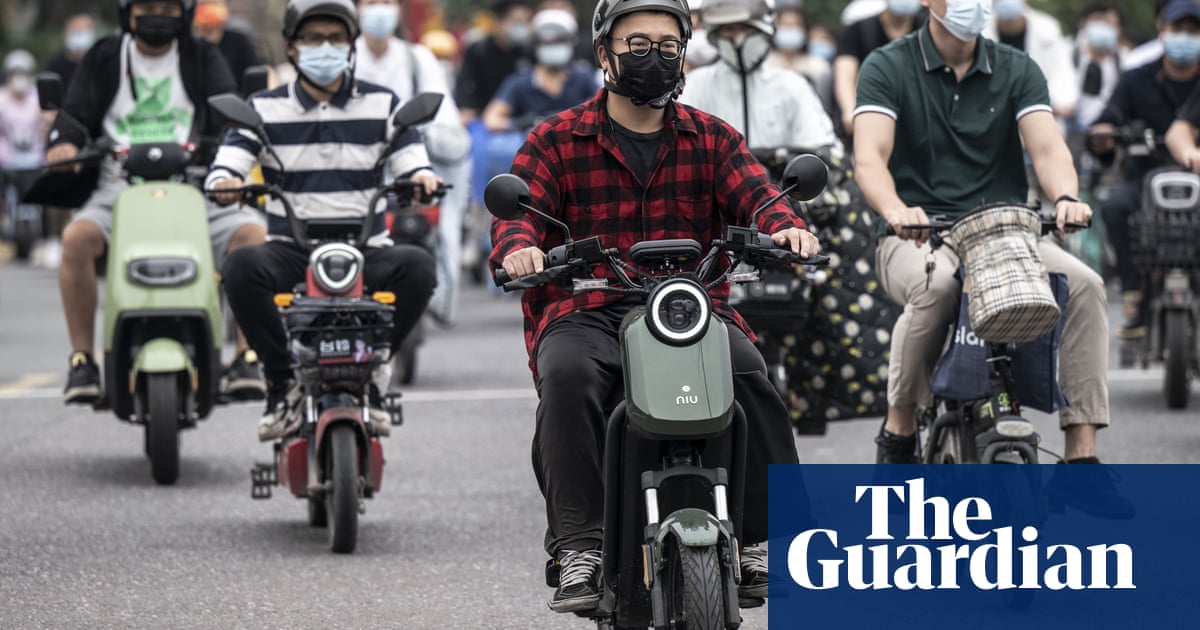
Crowds of people in the southern Chinese city of Guangzhou crashed through Covid barriers and marched down streets in chaotic scenes on Monday night, according to videos posted online, in a show of public resentment over government restrictions.
Among the latest outbreaks in China, Guangzhou has the biggest caseload, with new daily infections of Covid-19 exceeding 5,000 for the first time and fuelling speculation that localised lockdowns could widen.
Videos posted and widely shared on Twitter, which Reuters could not independently verify, showed noisy scenes in Haizhu district of people charging down streets and remonstrating with workers in hazmat suits.
NEW – People in China's Guangzhou city tear down COVID barricades.pic.twitter.com/M28Rw63APC
— Disclose.tv (@disclosetv) November 14, 2022
\n","url":"https://twitter.com/disclosetv/status/1592202219499450370?s=20&t=Lzmp2kgx0-Pne5utTlgf6Q","id":"1592202219499450370","hasMedia":false,"role":"inline","isThirdPartyTracking":false,"source":"Twitter","elementId":"c8fbefc3-9808-485f-84d5-8328b2fee610"}}”>
Several hashtags related to the topic of “riots” in the area were scrubbed from China’s Weibo microblogging site by Tuesday morning. Twitter is blocked in China.
Neither the Guangzhou city government nor the Guangdong provincial police responded to requests for comment.
On Tuesday, authorities reported 17,772 new local Covid-19 infections for 14 November, up from 16,072 a day earlier and the most since April, even as many cities scaled back routine testing after authorities announced measures last week aimed at easing the impact of heavy coronavirus curbs.
In Beijing, new infections hit a record high of 462 for Monday, up from 407 a day earlier. Big cities including Chongqing and Zhengzhou were among the worst hit.
Still, China is scrambling to limit the damage of its zero-Covid policy nearly three years into the pandemic, as the latest in a spate of dismal economic reports showed retail sales fell in October and factory output grew more slowly than expected.
While many residents have expressed guarded optimism after Friday’s announcement that some of the stringent Covid policies would be eased, concerns grew this week over the worsening outbreaks and there was confusion as some cities halted or adjusted regular testing.
Monday night’s scenes in Guangzhou were the latest outpouring of frustration over the restrictions, which have included frequent lockdowns and enforced quarantines under a policy that China says saves lives.
Last month, a Covid outbreak at a massive Foxconn plant in Zhengzhou led to chaos, with many workers fleeing – including by climbing fences – and disrupting production.
In Guangzhou, home to nearly 19 million people, rising case numbers have fuelled speculation that a handful of district-level lockdowns could be expanded.
“The infection curve of Guangzhou is tracking the pace of Shanghai’s March-April outbreak, raising the question of whether a city-wide lockdown will be triggered,” JPMorgan analysts wrote, referring to Shanghai’s two-month lockdown this year, which sparked widespread unrest.
“It would become a testing point regarding the government’s determination to push for the relaxation of Covid control measures,” they said.
The investment bank estimates that cities with more than 10 new cumulative cases in the past week are home to 780 million people and account for 62.2% of GDP – roughly triple the levels seen at the end of September.
Under China’s new rules, testing efforts are to be more targeted, easing what has been a significant financial burden on cities.
On Monday, Beijing’s most populous district, Chaoyang, moved some testing sites closer to residential compounds. While that increased the overall number of sites, it also led to long waiting times for many, fuelling frustration since many workplaces and other venues still require negative test results from within 24 hours.
On Weibo, a hashtag on testing-booth closures was flooded with critical comments on Monday night before being censored. “What are working people supposed to do?” wrote one user. Another asked: “What kind of brain came up with this policy?”
On Tuesday, the state broadcaster, CCTV, said Chaoyang was adding more testing sites, including near offices.

